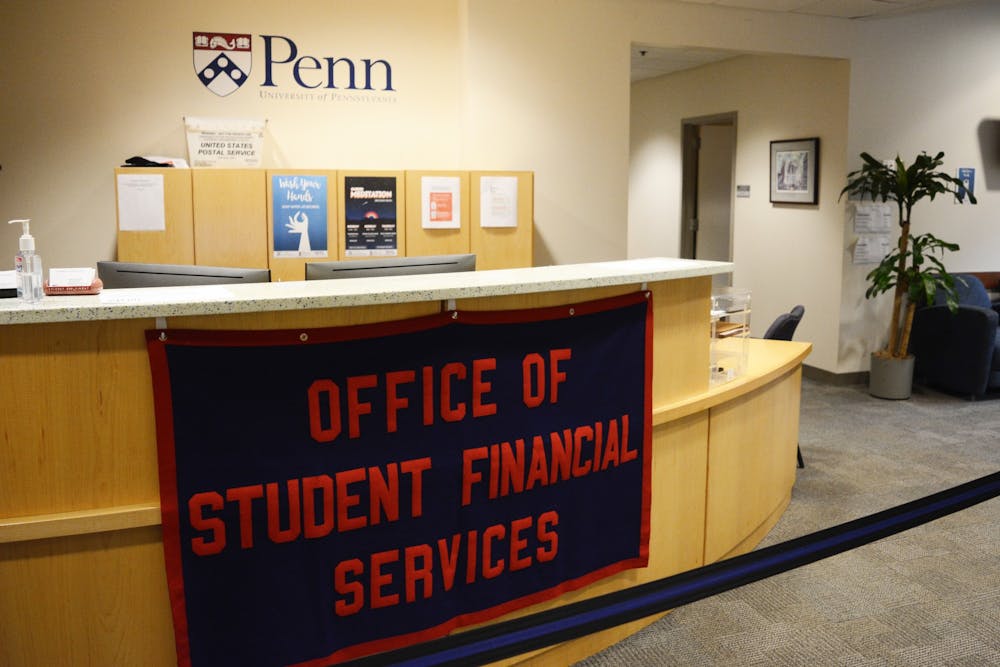
Student Registration and Financial Services launched a new initiative on Monday aiming to provide Penn students with enhanced personal finance skills, the first centralized financial wellness program of its kind at Penn.
Led by 2019 College graduate Lyndsi Burcham, the program, known as Financial Wellness at Penn, is part of the University's larger Wellness at Penn initiative. The program will feature a series of monthly events, including in-person workshops and online modules, focused on preparing students to make better financial decisions after Penn. The program is open to all Penn undergraduate and graduate students.
As part of Financial Wellness at Penn, representatives from SRFS as well as student ambassadors for the program will host monthly financial wellness events, dubbed "Financial Fridays." Burcham said these events are intended to be more relaxed and conversational than a typical panel. The first "Financial Friday" will be held on Jan. 31 at noon, and it will focus on how to make financial resolutions for the new year.
Burcham said it is important to call the initiative a wellness program instead of merely a financial literacy class, because finances can impact other aspects of students' lives, such as their mental and physical health.
"[Financial wellness is] more than just knowing the actual content and knowing what to do," Burcham said. "It is actually being able to implement it and make long-lasting change within your lifestyle."
Before Financial Wellness at Penn, SRFS did not have a formalized program focused on financial literacy, according to the Director of Communications for the Division of Finance Paul Richards.
"We know that there were initiatives that existed individually around campus, but this is the first centralized effort for financial wellness," Burcham said.

Representatives from SFS and student ambassadors for the program will host monthly financial wellness events, dubbed "Financial Fridays."
Some of these individual initiatives include services offered by the University of Pennsylvania College Achievement Program, which offers academic and personal support to first-generation, low-income students and incorporates financial literacy into its program. The Urban Studies Department also offers a popular class on financial literacy, URBS 140, “Inequity and Empowerment: Urban Financial Literacy," which was once co-taught by 2013 Wharton graduate Brandon Copeland, a linebacker for the New York Jets.
According to a press release sent to various student groups on campus, SRFS will continue to recruit student ambassadors for the program, and it will also offer financial wellness grants for students who want to start their own financial literacy initiatives. Financial Wellness at Penn will also give private presentations on topics like budgeting, banking, credit, loans, and investing for interested student groups.
The Financial Wellness website features information on budgeting, banking, debt, and investing. Students also gain free access to Cash Course and Financial Avenue, two external financial education programs.
College sophomore and Undergraduate Assembly member of the SRFS Advisory Board Ryan Bush said he hopes the program will have a positive impact on the Penn community.
“Nobody should have to worry about figuring out convoluted financial issues on top of juggling classes and extracurriculars, and this program helps to make that process just a little more manageable," Bush said.
College junior Brooke Price said the program is a great idea, especially for students who might not otherwise have access to such financial advising resources. As a first-generation, low-income student, Price said she did not have a structured way to learn about financial literacy, and said it was difficult to find financial advising on her own.
"There is such a wealth of information on the internet that it might be hard to know what is best for me," she said. "But it’s great that Penn is structuring [the program] in a way that’s great for college students and they have an awareness of where students are coming from."
Penn's Vice President for Finance and Treasurer MaryFrances McCourt hopes to see the financial wellness program become a larger part of student life.
“My vision five years from now is that financial literacy will not be viewed as a separate program, but rather as part of the fabric of how we enhance our student experience with evidence of its impact across all aspects of student life,” she said.
The Daily Pennsylvanian is an independent, student-run newspaper. Please consider making a donation to support the coverage that shapes the University. Your generosity ensures a future of strong journalism at Penn.
Donate







